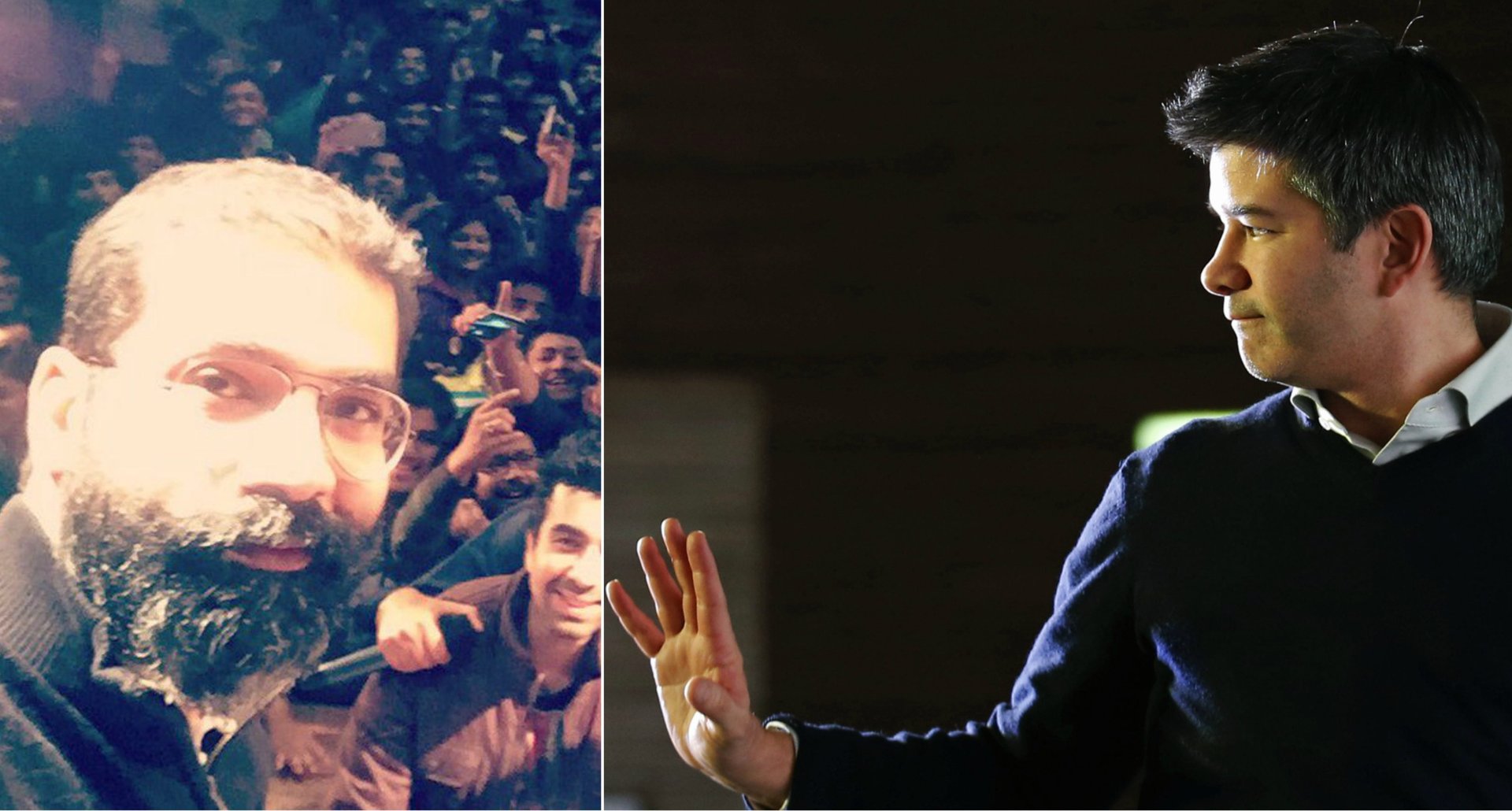Susan Fowler unravelled Uber; “India’s Fowler” has done the same in Mumbai
First came the blog post leveling severe allegations of workplace harassment. Then, a media circus followed, airing the CEO’s misbehavior in public. Next came investor pressure, and finally, he stepped down.


First came the blog post leveling severe allegations of workplace harassment. Then, a media circus followed, airing the CEO’s misbehavior in public. Next came investor pressure, and finally, he stepped down.
No, we’re not talking about Uber.
The Travis Kalanick ordeal hits very close to home for Mumbai-based online comedy content startup TheViralFever (TVF). At Uber, Kalanick’s downfall was sparked by a complaint from Susan Fowler, a former engineer who wrote a blog post about being harassed by her manager, revealing the rampant sexism within the company. Similarly, an anonymous ex-TVF employee, who dubbed herself “India’s Fowler,” alleged that she experienced nearly two years of “abuse and molestation” at the hands of TVF co-founder Arunabh Kumar in a blog post, too.
Once the ball was set rolling, the accusations snowballed. More victims came forward, as did stories of inaction at both companies. After Fowler’s blog post about Uber went live, Kalanick called for an “urgent investigation,” but during her stint at the company, the complaints received little attention.
“The HR team was known to be deftly afraid of Travis’s tendency to blame and ridicule the women and yell at HR whenever they went in with complaints of abuse,” an ex-Uber employee wrote under the pseudonym Amy Vertino.
At TVF, the initial reaction was far worse. Instead of ordering an investigation, the company swiftly dismissed the allegations as “completely ludicrous and defamatory.” TVF only decided to take action after more women—especially ones who were not anonymous—revealed their own experiences of disconcerting encounters with Kumar. Following this, Nidhi Bisht, casting director at TVF and the protagonist of the company’s web series Bisht, Please!, said the company had “zero tolerance towards workplace harassment and an investigation will be conducted and appropriate actions will be taken.” But by then the damage was done.
With their reputations in dire straits, the CEOs of both TVF and Uber faced mounting investor pressure. Eventually, both vacated their posts.
Nevertheless, the two former CEOs aren’t cutting ties with their companies for good. Uber’s Kalanick is still staying on the board, and Kumar has said he will continue to mentor the team at TVF. He may even reprise his role as Yogi in the company’s viral hit web-series Pitchers by the end of the year.
Only in India
The copy-paste journey does have one key difference: In Uber’s case, the allegations were levied against Fowler’s manager, not Kalanick himself. Kumar, however, was at the receiving end of the accusations. There are currently police complaints lodged against him in three cities. If found guilty, losing the CEO title may only mark the beginning of Kumar’s woes.
The sad truth, though, is that India does not have an impressive track record in chastising the sexual offenders of its corporate world. For instance, RK Pachauri continued to lead The Energy & Resources Institute (TERI) in New Delhi, despite evidence that he sexually harassed a female colleague. The accusations against Indian Hotels chief executive Rakesh Sarna went unheeded, too.
While India’s 2013 workplace harassment law (pdf) requires companies to create a thorough system to vet and investigate complaints, many Indian startups view these as guidelines on paper. Even when the rare employee works up the courage to report untoward incidents, appropriate actions are hardly taken. A survey by the Indian National Bar Association (pdf) found that 38% of the 6,047 male and female participants had faced sexual harassment at work, but 69% of them did not complain, fearing repercussions.
That hesitation isn’t unfounded: In most cases, including at TVF, it was the victims who left their jobs first.